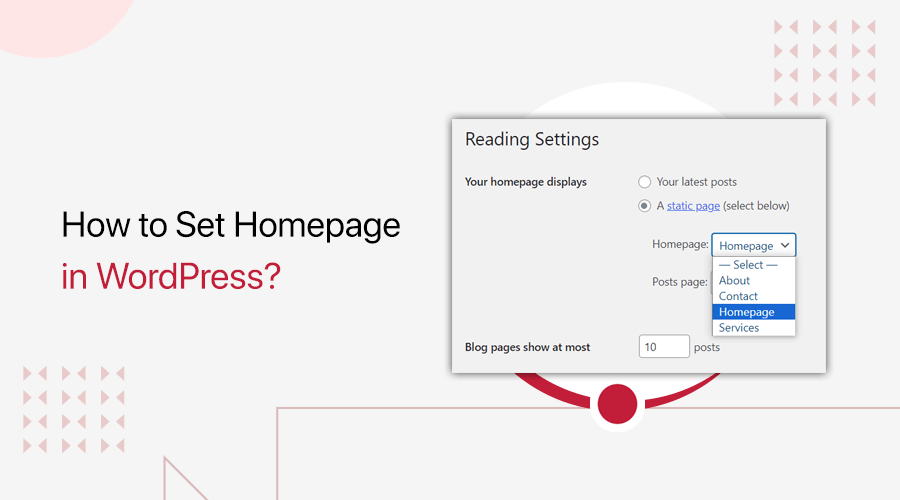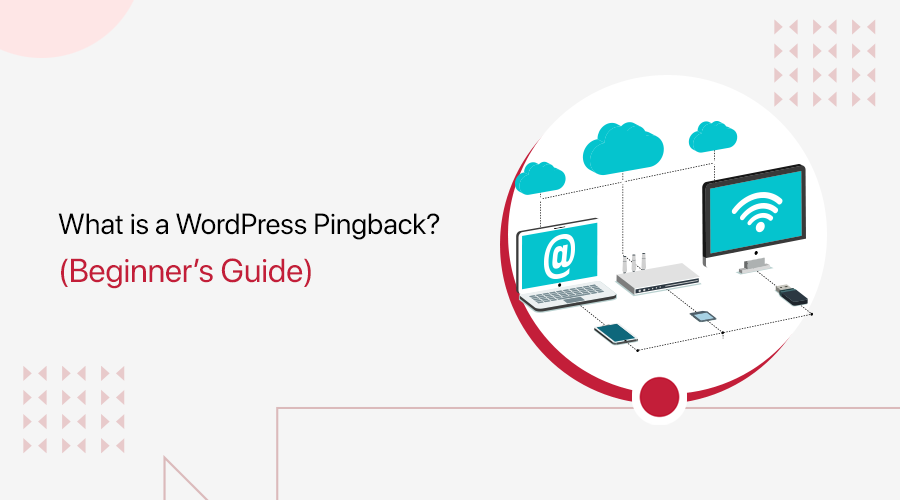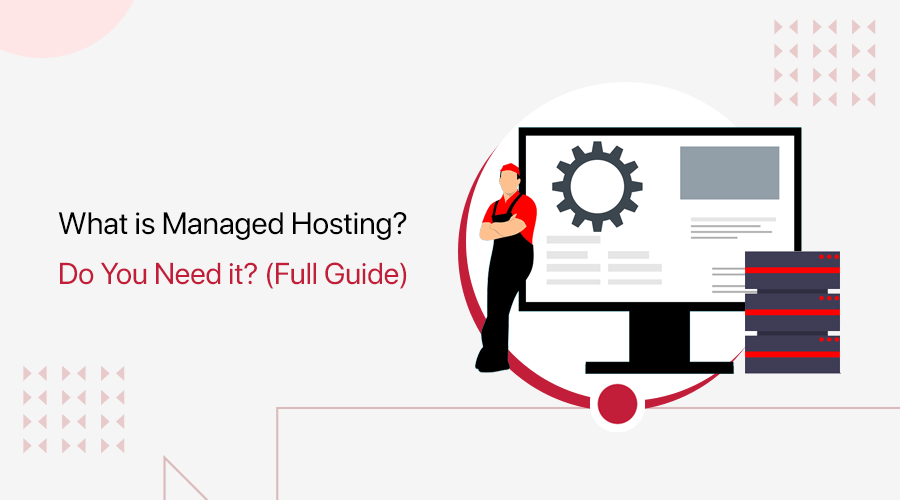
Are you willing to know what managed hosting is? Or wondering if you need it for your site or not? If yes, then you’re in the right place to know that.
Nowadays, managed hosting has become a popular hosting solution. You may have seen people switching to managed hosting. So, thinking if you also need it for your site or not?
Managed hosting is a type of web hosting that takes care of the technical stuff while you can focus on your site content. It may look like a costly option for hosting a website. But in the long run, it definitely comes with several features and benefits.
In this article, we’ll see what managed hosting is, its benefits, drawbacks, and more. Further, we’ll guide you to select an ideal host if you really need it for your website. So, let’s begin!
A. What is Managed Hosting? – An Overview
Managed hosting is a type of web hosting where a service provider not only provides a regular hosting facility. But also offers a handful of website management and maintenance features.
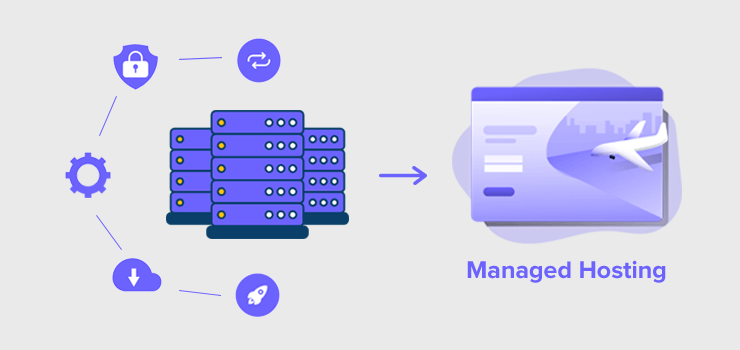
Overall, it handles or enhances all the important hosting requirements. Like security, backup, speed, setup, and administration of the server and your websites.
Thus, if you select a managed hosting service, then your provider makes sure your site and applications are always running. And they’ll fix things if anything goes wrong along the way.
On top of that, you’ll also receive premium support from the expert team to help you run your sites efficiently. It means you don’t have to worry if you are stuck at any point.
Therefore, this gives you complete freedom to focus on growing your business. While the host will be responsible for helping you in the building and managing your site.
Not to forget, setting up a site on such web hosting platforms is also easier. It means you don’t need to have much technical knowledge or experience.
On the other hand, unmanaged hosting is the opposite of managed hosting. Since you’ve to work on your own to set up and manage the server and sites.
With that being said, let’s move forward and learn more about this hosting!
B. What are the Various Types of Managed Hosting?
Here, we’ll be looking at the types of managed hosting services we can find. So, let’s see them.
1. Fully Managed Hosting
With a fully managed hosting service, the host will manage everything on your behalf. That includes the server deployment to application performance.
Thus, companies can run their business with little to no concern for web hosting operations. In any case, if a website crashes, then the host will actively help you with the recovery.
So, this type of hosting service is suitable for companies with heavy workloads or high traffic.
Some fully managed hosting platforms are Liquid Web, WPEngine, etc.

Some of the services that providers from this type of hosting offer are:
- 24/7/365 support
- Both physical and network security
- Application management and deployment
- Automatic backups
- Hardware installation and maintenance
- Free and simple website migration options
- System-level monitoring alerts and notifications
- Free SSL (Secure Socket Layer), CDN (Content Delivery Network), and other services.
2. Semi-managed Hosting
There are hosting platforms that offer different variations of fully managed hosting services. One can be a semi-managed hosting service.
From semi-managed hosting, you’ll not get all the features that were in a fully managed service. This means hosting providers remove some of the host’s responsibilities. And which features are excluded totally varies on different platforms.
For example, a host may have a semi-managed hosting plan with limited support. Such as, they help you with server deployment and maintenance but not other support services.
An example of a hosting platform that gives semi-managed hosting is HostGator.
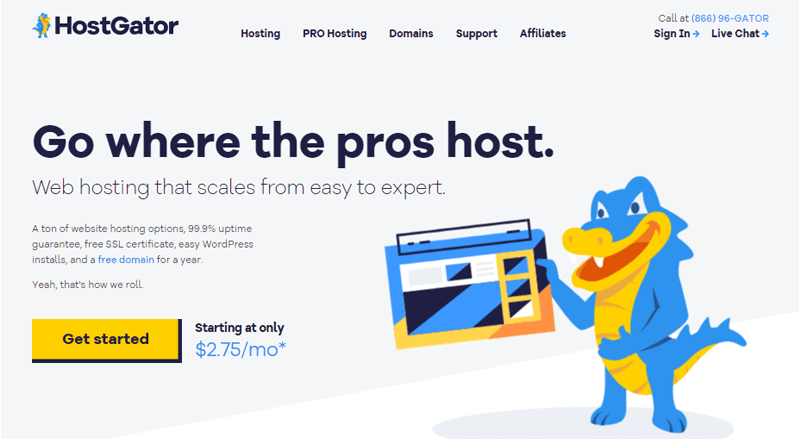
But when should you choose such a service?
Suppose you want to access some of the server operations, at least partially. While also wanting the host to take part in major activities. For such cases, semi-managed hosting can be the ideal option.
3. Managed Email Hosting
For instance, your business highly relies on email communications. For that, you outsource your email services. And generally, companies use Gmail for their business email needs. But this can be quite costly and not that beneficial overall.
Your web host may manage your site, but for the emails, there’s something more you can get. That’s when managed email hosting comes into play.
An example of a hosting provider that gives managed email hosting is Liquid Web.
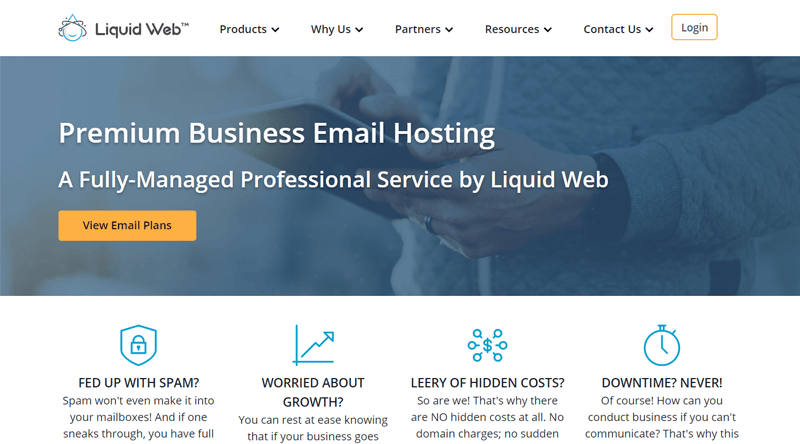
A managed email hosting will give you additional benefits like enhanced cybersecurity protection. Moreover, you can also specify each email parameter, such as credentials, autoresponders, disk quota, forwarders, etc.
4. Managed App Hosting
There are web hosting platforms that offer hosting services for specific applications. Some examples of managed app hosting are managed WordPress, managed WooCommerce, etc.
Based on the application, the managed app provider will set up the right environment for your app. Therefore, the host will check if the app is working, well-updated, and secure. Also, it aims to offer support to users whenever there’s any issue.
This means that as soon as you sign up with the plan, you’ll get an environment where your required apps are running quickly and safely.
Some of the popular managed WordPress hosting providers are Kinsta, WPEngine, etc.
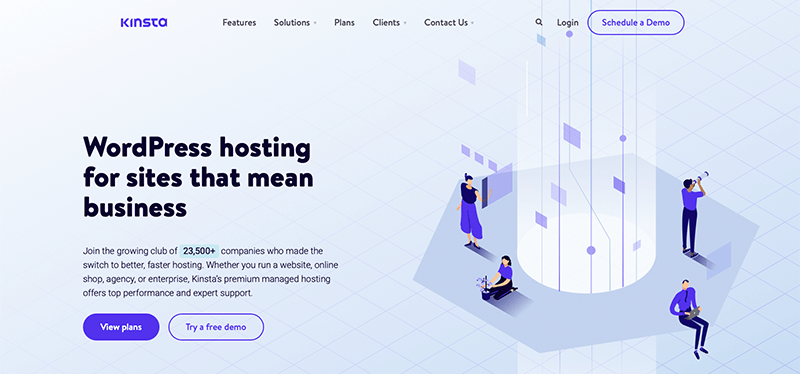
Let’s say you want to host a WordPress site with a managed hosting service. Then, you can choose a platform offering a managed WordPress hosting solution right away!
C. What are the Benefits of Managed Hosting?
Now, let’s see the benefits of a managed hosting service. By going through them, you may identify if you need this service for your site or not.
1. Server Monitoring
Server monitoring is an important feature that most managed hosting platforms offer. In this hosting service, every server activity will be monitored 24/7.
Thus, the host will detect and identify any kind of problem or vulnerability that hampers the server performance. Not only that, but you’ll also receive real-time notifications if your security is at risk.

Therefore, managed hosting is beneficial to make your site stay online and run smoothly. And with this 100% uptime service, you can also deliver highly available sites to your visitors.
For example, Cloudways looks after your server with 24/7 real-time monitoring. Further, you can also check 16+ various metrics of your server performance.
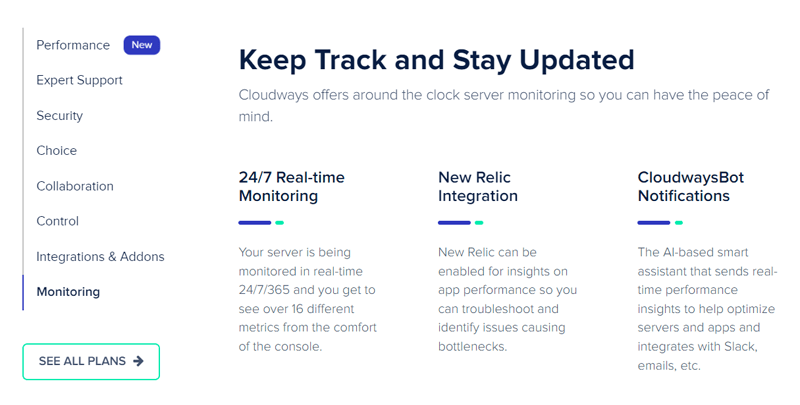
2. Robust Security
Managed hosting platforms include a wide range of expert professionals to maintain and improve your site’s performance. For that, they make sure your site is always secure.
What they have is experience dealing with issues related to server security using security tools. So, they keep monitoring to check for possible errors. And when found, they’ll fix them right away.

On top of that, such hosts also give lots of basic and extra layers of security features. Such as hosts will perform virus scanning, firewall configuration, spam filtering, offer SSL certificates, etc.
Let’s take the example of Cloudways. This managed host offers a dedicated firewall, advanced DDoS (Distributed Denial of Service) protection, free SSL installation, bot protection, and more.
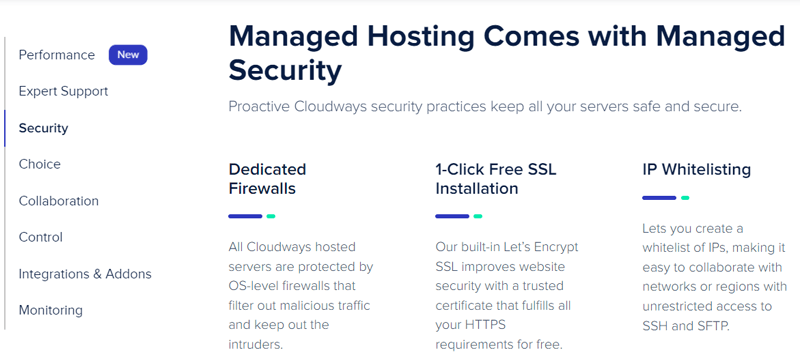
All of them are to prevent your site and data from security-related issues.
3. Easy to Manage and Upgrade
As your site grows or when your site gets more traffic, you may need more resources than you actually have. It means you’ll require more storage space, bandwidth, monthly traffic limit, etc.
So, you need to manage the resources to be used efficiently. And when it’s necessary, you must upgrade them.

Managing and upgrading them in an unmanaged hosting platform requires technical knowledge. But such cases aren’t difficult to handle when you’re using a managed hosting service.
That’s because your host will help you to easily manage and upgrade the resources when necessary.
Hosting platforms like Cloudways even come with an automatic scaling function. With its ‘Pay as you go’ system, you’ll pay as much as you use the resources. Once you need more, the host will automatically upgrade them, charging you money.
4. Premium Support
Managed hosting solution offers 24/7 customer and technical support to its users. And that can be through various modes. Like a phone call, live chat, email, support tickets, and more.
So, if you’re facing any confusion or issue while making your site, then you can easily contact the support team. This web hosting niche is focused on solving your queries more than other hosting types.

Moreover, such hosts include a dedicated team of experts to provide premium support. They are trained to resolve any issue plus prevent problems early before hampering the site performance.
Therefore, when choosing a managed hosting service, its support team looks after:
- Regular server maintenance and monitoring
- Installation of new updates
- Website migration
- Solve technical queries of users, etc.
5. Automatic Backups
With managed hosting, you won’t have to worry about losing your data. Because web hosting platforms offering managed hosting come with automatic backup options.
Some hosts take nightly, daily, or weekly backups of your website and resource. While others even come up with an on-demand option so that you can instantly conduct a backup yourself.

Not to mention, you can also restore the backup if there occurs any issue. Literally, you can do anything from a managed hosting service with much ease.
Note that this isn’t the same for unmanaged hosting services like shared hosting. Since such hosts won’t have a built-in function for backup. So, you’ve to take the help of backup plugins.
6. Fast Speed
Search engines like Google love fast-loading websites. As it’s one of the major criteria for ranking a site higher on search results.
Moreover, visitors get a better user experience when a website loads fast. This also grabs the user’s attention and helps your business to grow.
Therefore, sites must be optimized for all devices to reduce the loading time. So that it won’t affect your site’s ranking and performance.

With a managed hosting service, the provider makes sure that your site delivers a fast and smooth experience. That too on both desktop and mobile devices.
7. Built-in CDN and Caching
We already know the benefits managed hosting offers in terms of site speed. Now, let’s look at the major features you’ll get for a quick site.
Most managed hosting providers come with a CDN service. When a user opens your site, then it’ll load from their closest server. And not the original hosted server. This fastens the site speed.

For instance, Kinsta is a managed hosting platform with 34 data centers. It gives a free CDN service through Cloudflare. This expands the server network in 200+ cities of 100+ nations.
Similarly, caching is another feature that this hosting type offers. In simpler terms, it’s the process that stores static site content as a temporary copy so that users get access to the site quickly.
Normally, there are 2 kinds of caching techniques:
- Server-side caching stores the content, code, and queries on the server.
- Client-side caching stores the site content, image, and code on the user’s browser.

Amazingly, most managed hosting providers offer both these ways. Because other hosts only offer client-side methods by allowing the use of caching plugins.
For instance, Cloudways come with server-level caching ways on its dashboard. Such as Varnish cache and Memcached. While for client-level caching, it suggests using its own plugin, Breeze.
D. What are the Limitations of Managed Hosting?
Everything has both positive and negative sides. Here, we’ll look at the limitations of managed hosting. So, let’s start!
1. Costly
A managed hosting service comes with tons of features and benefits for managing your site. To get all those features, it’s obvious that you also need to pay more.

It means managed hosting services cost you more than a regular unmanaged hosting solution. But you know that other hosts don’t provide that level of support that a managed host offers. Isn’t it?
Further, some managed hosting platforms are relatively cheaper than other providers. However, if you’re a beginner looking for the cheapest plan, then you shouldn’t select managed hosting.
2. Limited Plugin Support
Plugins or add-ons are one of the best tools that allow you to add extra functionality to your sites. However, some managed hosting platforms limit or restrict using certain plugins.
This is all for site security. But you may miss out on a feature on your site due to this restriction. And the limited support usually happens for the open-source or third-party plugins or tools.
3. No .htaccess File Access
One of the top drawbacks of a managed hosting solution is that you’ll not get access to your server. Most hosts don’t allow their users to access the control panel since they manage the site for you.
When going in-depth, managed hosts use NGINX, which doesn’t have the .htaccess feature. Using the .htaccess file allows you to make configuration changes. But since managed hosts don’t have it, this means you aren’t able to access certain functions.
E. Differences Between Managed Hosting vs Others
Now, you know the merits and demerits of managed hosting. Here, we’ll be comparing managed hosting with different kinds of unmanaged hosting services. So, let’s see.
We know managed hosting is best when you want to focus on growing your business. Since the host will look after all the technical features. Moreover, it’s ideal when you want to set up a complex site with high traffic.
1. Managed Hosting vs Shared Hosting
On the other hand, shared hosting is web hosting where your site will share resources with others on the same server. It offers a decent amount of resources ideal for beginners for personal sites, start-ups, etc. And it’s quite popular because of its cheaper hosting plans.
Moreover, it’s a self-managed hosting service. So, you’ll get a user-friendly control panel where you can configure everything.
This hosting solution is ideal:
- When you have a limited budget.
- If you want to manage most of the things on your server on your own.
- In case your site doesn’t gain much traffic.

Now, let’s check them in terms of cost and features with an example each.
- Shared Hosting: Hostinger has a starting cost of $1.99/mo. You can host 1 site with features like 50 GB storage, 100 GB bandwidth, etc.
- Managed Hosting: Cloudways comes with an initial cost of $10/mo. You’ll get to host 1 site with 25 GB storage, 1 TB bandwidth, etc.
2. Managed Hosting vs Cloud Hosting
Cloud hosting comprises a network of connected virtual and physical cloud servers that hosts sites. And cloud hosting services are known for greater flexibility and scalability.

There are 2 kinds of cloud services. They are discussed below to know how different they are from managed hosting.
I. Public Cloud
Suppose you have time and expertise to secure and manage your hosting. However, don’t want to invest in servers. Then, you can choose public cloud hosting such as AWS, Azure, etc.
Note that this is an unmanaged hosting service, so you’ve to take responsibility for everything. You must monitor traffic, run backups, configure firewalls, optimize resources, etc.
On top of that, your data will be stored on a shared server with others. It means you’ll have to take much time to configure the overall system for security. And this may need technical knowledge.
II. Private Cloud
Comparatively, an unmanaged private cloud is more secure than a public cloud. Since your data is hosted on private hardware and not in a shared environment.
That means you can break your server resources into individual virtual machines for separate applications. However, you’ll still need to monitor and maintain the overall hosting yourself.
Ultimately, managed private and public cloud hosting services tend to be more cost and time effective for businesses. Since it comes with better security and performance capabilities.

Now, let’s see the cost and features of managed and unmanaged cloud hosting with an example.
- Unmanaged Cloud Hosting: DigitalOcean comes with an initial cost of $4/mo for a virtual machine. It comes with 10 GB storage, 500 GB bandwidth, etc.
- Managed Cloud Hosting: Cloudways starts from $10/mo for DigitalOcean. You’ll get to host 1 site with 25 GB storage, 1 TB bandwidth, etc.
3. Managed Hosting vs Dedicated Hosting
Unmanaged dedicated hosting refers to web hosting where the data is hosted on individual servers. This removes the security concerns that come with shared hosting. And its cost is more than shared hosting but less than managed hosting.
However, you need to perform all the technical stuff yourself. So, it’s not for businesses without much technical knowledge to carry out the setup and maintenance themselves.
But once you choose a managed dedicated hosting instead, your server will be monitored 24/7. Also, you’ll receive dedicated support and all the other benefits.
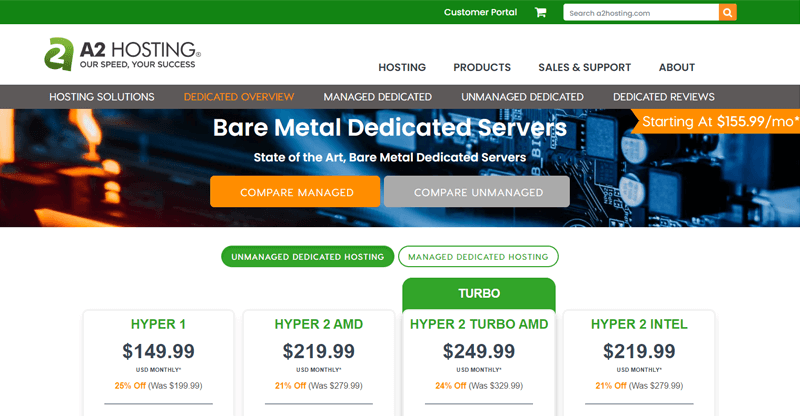
Here, we’ll see the cost/features of managed and unmanaged dedicated hosting with an example.
- Unmanaged Dedicated Hosting: A2 Hosting has a starting price of $149.99/mo. It offers 2 TB storage, 6 TB bandwidth, etc.
- Managed Dedicated Hosting: Here, A2 Hosting comes with an initial cost of $199.9/mo. It offers all the same services as above but as a managed solution.
4. Managed Hosting vs VPS Hosting
VPS (Virtual Private Server) hosting is a better option than dedicated hosting if you’re looking for cheaper yet secure hosting. Here, a dedicated server will be allocated virtually within a shared hosting environment. That’s why VPS hosting is a hybrid of dedicated and shared hosting.
But if you want these features plus your hosting platform to look after the technical activities, then choose managed VPS hosting. At a good price, you’ll get top-notch security, backup, and other exclusive features as a managed solution.

Here, we’re comparing managed and unmanaged VPS hosting with an example of each.
- Unmanaged VPS Hosting: Hostinger starts at $3.49/mo. And it gives 20 GB storage, 1 TB bandwidth, and more.
- Managed VPS Hosting: Liquid Web has an initial cost of $59/mo. It comes with 40 GB storage, 10 TB bandwidth, etc. (Linux)
F. How to Choose the Best Managed Hosting Service?
Here, we’ll mention the different criteria to consider while choosing a managed hosting service. So, make sure you select the best platform keeping all these things in mind.
- Type of Managed Hosting: Check if the host offers the type of managed hosting solution you want. You may prefer a fully managed or semi-managed service. Or a specific managed app hosting.
- Support: Make sure the host gives you 24/7 support to deal with your problems. Also, they should take over the complex steps of hosting. Such as website migration.
- Security Features: Moreover, your host must offer important security features. Like SSL (Secure Socket Layer), vulnerability scans, physical data center safety, etc.
- Automatic and Manual Backups: Learn if the host conducts automatic backups and allows you to take manual backups or not. Both of them are necessary for disaster recovery.
- Automatic Managed Updates: As a managed solution, your host must be responsible for checking and then installing the latest updates.
Apart from them, there are several other general things of consideration. Such as pricing, storage, speed, customer reviews, bandwidth, etc. It’ll be great if you also read our article on how to choose a web hosting company for more details.
G. Which are the Best Managed Hosting Providers?
We gave you everything you need to know about this popular web hosting type. Once you know how to choose a hosting service, look into the top options available.
To help you out, the following is the list of the best managed hosting providers. Go through their description, pricing, and features to select an ideal one for your site. So, let’s go!
1. Cloudways
Cloudways is a managed cloud hosting service without its own cloud hosting infrastructure. So, you must choose a cloud hosting platform among DigitalOcean, Linode, Vultr, AWS, and Google Cloud. Then, Cloudways will manage your server for you. Interesting, isn’t it?

Furthermore, this hosting service allows you to install unlimited applications to your server. And that can be any type of software. That’s because Cloudways offers managed hosting for applications like WordPress, WooCommerce, Magento, etc.
Key Features:
- It’s built with auto-healing servers that can conduct automatic backups.
- Offers developer-friendly features/tools like staging areas, SSH (Secure Socket Shell), etc.
- With its 3 times faster SSD drives, your website will perform and load incredibly well.
- Gives CloudwaysCDN service for a better response time across the world.
- From OS-level firewalls on servers, your resources are protected against malware.
Pricing:
The price of Cloudways differs according to the cloud platform you choose. The table below shows the pricing plans of the Standard option while choosing DigitalOcean.
| Plan | Plan 1 | Plan 2 | Plan 3 | Plan 4 |
| Price Per Month | $10 | $22 | $42 | $80 |
| Memory | 1 GB | 2 GB | 4 GB | 8 GB |
| Processor | 1 core | 1 core | 2 core | 4 core |
| Storage | 25 GB | 50 GB | 80 GB | 160 GB |
| Bandwidth | 1 TB | 2 TB | 4 TB | 5 TB |
Check the best Cloudways alternatives to know its top competitors.
2. Kinsta
Do you want a managed hosting solution for setting up a WordPress site? Then, you can go with Kinsta. It’s one of the best hosting companies that allows you to host any kind of website. Plus, this host is ideal for any mid to large business like an online store, enterprise, or agency.

Moreover, it’s Google Cloud powered. That means you can choose from 29 data centers to host your site. On top of that, you’ll also get Cloudflare CDN service for free. And that has a network spread across 200 cities in 100+ countries.
Key Features:
- Uses the latest HTTP/3 protocol for enhancing performance and security.
- The enterprise-level firewall can detect/block DDoS (Distributed Denial of Service) attacks.
- Every 2 minutes, the host checks the status of your website to provide uptime service.
- Also, it carries out full backups of your resources every day.
- The migration team will migrate your site to Kinsta for free. Plus, they’ll make sure to check everything beforehand.
Pricing:
Check out the table below to know some of its pricing plans available.
| Plan | Starter | Pro | Business 1 | Enterprise 1 |
| Price Per Month | $30 | $70 | $115 | $675 |
| WordPress Installs | 1 | 2 | 5 | 60 |
| Monthly Visits | 25K | 50K | 100K | 1M |
| SSD Storage | 10 GB | 20 GB | 30 GB | 100 GB |
| Free CDN | 100 GB | 200 GB | 400 GB | 2000 GB |
3. Liquid Web
Liquid Web offers robust and scalable managed web hosting services for businesses of all sizes. Moreover, it includes fully managed cloud and web hosting solutions. Such as managed WordPress, managed VPS, managed WooCommerce, etc.

Not to mention, all of its managed hosting services use the high-performance cloud platform. Due to this reason, your site will have exceptional speed. And you’ll get enough scalability and security features for your growing website.
Key Features:
- Takes less than 10 minutes to set up the platform. Also, you’ll get a simple control panel.
- Conducts daily backups and stores them for about 30 days. Plus, you can restore or download them with a few clicks.
- It’s built using recent technologies such as PHP7 and Nginx for better performance.
- Includes 10+ data centers to choose from.
- Create a staging website, and you can test your site or resources before going live.
Pricing:
First, you need to choose the managed hosting solution you want. Then, select a plan available. In the case of managed WordPress, the following are the price options.
| Plan | Spark | Maker | Designer | Builder | Producer | Executive | Enterprise |
| Price Per Month | $13.3 | $55.3 | $76.3 | $104.3 | $209.3 | $384.3 | $699.3 |
| Number of Sites | 1 | Up to 5 | Up to 10 | Up to 25 | Up to 50 | Up to 100 | Up to 250 |
| Storage | 15 GB | 40 GB | 60 GB | 100 GB | 300 GB | 500 GB | 800 GB |
| Bandwidth | 2 TB | 3 TB | 4 TB | 5 TB | 5 TB | 10 TB | 10 TB |
4. Bluehost
Yet another hosting platform with a managed WordPress solution is Bluehost. When you make a Bluehost hosting account, you’ll get the latest version of WordPress already installed. And you get to access hundreds of free and premium WordPress plugins and WordPress themes for your site.

Moreover, it comes with an all-in-one marketing center. There, you’ll find tons of tools and services to improve SEO (Search Engine Optimization), email marketing, and social media to grow your site. That’s why it’s also one of the top recommendations by WordPress.org.
Key Features:
- Create a staging site and check the changes and updates of your site before it goes live.
- No limitations on the number of sites, storage, domains, subdomains, and traffic.
- Shows detailed analytics of your site traffic performance on a daily, weekly, or yearly basis.
- It takes daily backups, and you can restore them with just a click of a button.
- Jetpack integration gives your site a handful of features for enhanced security.
Pricing:
Bluehost offers several hosting solutions. One of which is WP Pro, which is the managed WordPress solution. The plans available are:
| Plan | Build | Grow | Scale |
| Price Per Month | $19.95 | $29.95 | $49.95 |
| Number of Websites | Unlimited | Unlimited | Unlimited |
| Monthly Visits | Unlimited | Unlimited | Unlimited |
| SSD Storage | Unlimited | Unlimited | Unlimited |
Check the best Bluehost alternatives to know its top competitors.
5. WPEngine
WPEngine is the last one on the list, which is also a fully-managed WordPress hosting provider. This host gives you dedicated technical assistance to host and set up your WordPress site. Thus, you’ll receive top-notch speed and support throughout.
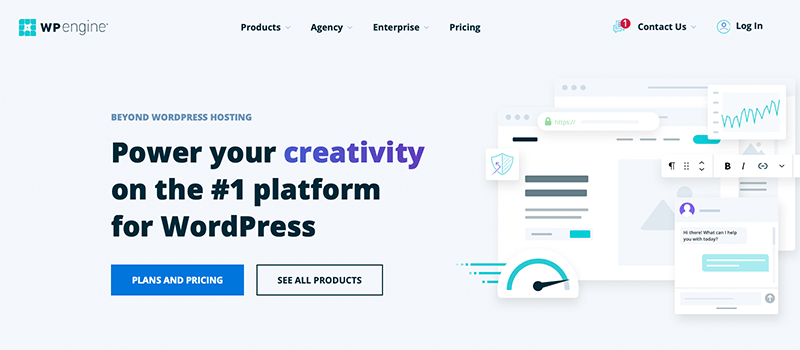
Additionally, it’s a very secure and reliable platform. Because you’ll not only get a free SSL but also platform-level protection for securing your business and site. Overall, it provides all the powerful tools to easily design, build, and host your site.
Key Features:
- Offers a free WP Engine Automated Migration plugin to ease you with migrating your site.
- You can also take on-demand backups when you want, apart from the daily backups.
- With its smart plugin manager function, you can check and ensure the plugin updates.
- Supports WooCommerce so that you get to make an online shop with ease.
Pricing:
Want to know the prices of the hosting plans on this platform? Then, here’s a table that shows that.
| Plan | Startup | Professional | Growth | Scale |
| Price Per Month | $20 | $39 | $77 | $193 |
| Number of Sites | 1 | 3 | 10 | 30+ |
| Local Storage | 10 GB | 15 GB | 20 GB | 50 GB |
| Bandwidth | 50 GB | 125 GB | 200 GB | 500 GB |
| Monthly Visits | 25K | 75K | 100K | 400K |
H. Do You Need Managed Hosting? Is it Worth it?
Managed web hosting provides several more beneficial features than other web hosting types. However, everyone may not need this hosting solution for setting up their website.
Some cases when you don’t need a managed hosting service are:
- Suppose you want to just test the hosting environment.
- Let’s say you’re a beginner with a limited target audience or don’t have much site traffic.
- If you’re starting out on a low budget.
- You’re a professional and capable of configuring your site yourself willingly.
Other than these situations, we recommend trying and using managed hosting.

It’s literally the best option when you’re busy with your business. Also, when you don’t want to worry about managing the server or site. And just focus on the content.
Therefore, managed hosting can be what you need if you want to grow your site to the fullest. So, totally worth it!
Conclusion
That’s all for here! We’ve reached the end of this beginner’s guide on what managed hosting is.
So, we hope you understand this web hosting service and can determine if you need it for your site or not. Moreover, we’ll be pleased if you even got to choose an ideal hosting platform!
At any point, in case you face confusion, then post a comment. Our team will be there to help you with your queries.
Additionally, we want to read some of our helpful guides. That includes the best WooCommerce hosting services and do you need a CDN?
Lastly, follow us on Facebook and Twitter to stay connected with our blogs.
